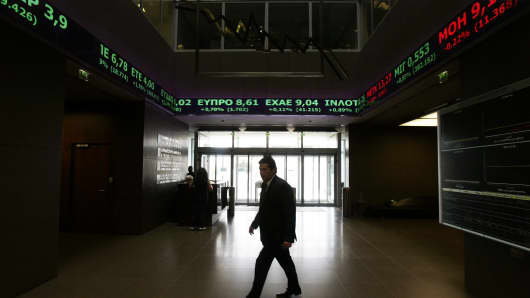First, if Italian, Spanish and Portuguese bond yields are not contained, higher borrowing costs could derail the cyclical recovery in the euro zone. If, for instance, yields on Italian government bonds maturing in 10 years were 2.5-3 percentage points higher than the yield on German bonds of the same maturity, this would warrant a review of the investment case for euro zone stocks.
However, ECB Chief Economist Peter Praet has made clear that the bank would make full use of measures in place and use "broad discretion" to activate other policy instruments if necessary, in line with the recent ruling from the European Court of Justice. This could include scaling up bond purchases, easing any issues in peripheral markets.
Second, as euro zone stocks have rallied strongly this year, we regard earnings growth as necessary to maintaining any overweight position. Momentum in earnings growth is presently broad-based. Companies in both core and peripheral Eurozone countries are performing well.
For instance, Italian firms increased profits by 27 percent over the past 12 months, according to Bloomberg data. And, apart from energy and telecom companies, every sector has seen profits grow over the past six months, with financial services and information technology firms leading the way.
Finally, a rift in euro zone ranks or conceding weakly to Greek demands could undermine confidence in European leadership. We believe leaders have the policies and mettle to deal with this situation appropriately. Handling previous crises, notably in Cyprus, has provided experience. Leaders have stood their ground so far. For us, this is a positive.
Our base case is that these triggers will not be tested. While we expect Greeks to ultimately accept their creditors' proposals, the ECB is ready to act forcefully if they don't. For now, investors in euro zone equities should look through any temporary volatility.




